
Composition and governance of C-BASC
A consortium of 15 laboratories in various fields
C-BASC brings together about 370 scientists from 15 laboratories working in a wide range of research areas. These 15 laboratories are now part of the Université Paris-Saclay created in 2019. They move together to the Saclay plateau in 2022, with the exception of CEARC and CIRED.
Figure: Participating laboratories classified by research area and C-BASC supervisory bodies (under the frame)
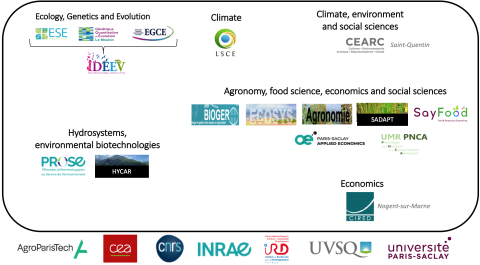
.
.
Description of participating laboratories
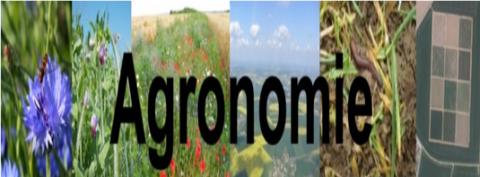
Agronomie (UMR 211)
It focuses on the evaluation and design of sustainable cropping systems. One
of our work is to conduct these activities at different scales, from the field to the global scale. Our activities are organized around three themes (1) Understanding and managing biological interactions, (2) Design and evaluation of technical systems, (3) Global agronomy.
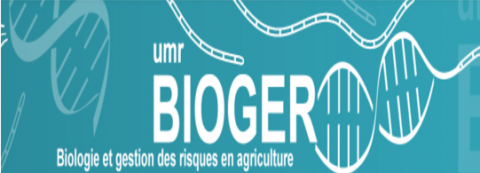
BIOGER : Biology and Risk Management in Agriculture (UMR 1290)
It focuses on research on fungal diseases of European field crops (notably wheat, oilseed rape and grapevine). Bioger undertakes multidisciplinary approaches (including genomics, molecular biology and biochemistry, cell biology, genetics, evolution, epidemiology, modeling, phenotyping and taxonomy) and at multiple scales (from gene to landscape).
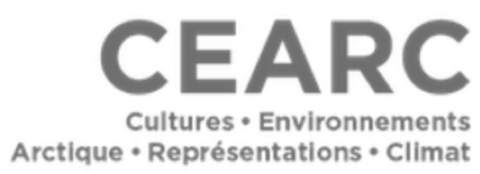
CEARC : Cultures, Environments, Arctic, Representations, Climates (EA 4455)
CEARC members interested in C-BASC aim to build a transdisciplinary practice by focusing on the analysis of interactions between human societies and their changing environments, including climate change. This field is rooted in the social and economic sciences and humanities, but also engages climate science, welfare analysis, land use analysis, and land use planning.

CIRED : International Centre for Research on Environment and Development (UMR 8568)
It studies the relationships between the environment, natural resources and development, focusing on three key areas: energy, urban infrastructure, and agriculture and forestry. Emphasis is placed on an ongoing dialogue between social sciences, natural sciences and engineering knowledge to address these relationships.
to address these relationships.
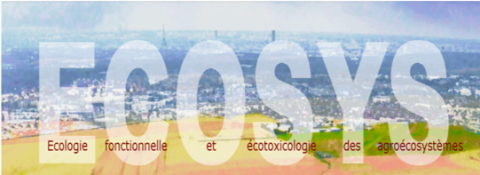
ECOSYS : Functional ecology and ecotoxicology of agroecosystems (UMR 1402)
It emphasizes an integrated approach to study the functioning of agroecosystems and their relationships with the environment, particularly through the concepts of functional ecology and ecotoxicology. They contribute to the quantification and prediction of ecosystem services by modeling the agronomic, environmental and sanitary performances of agroecosystems under the pressure of global changes.
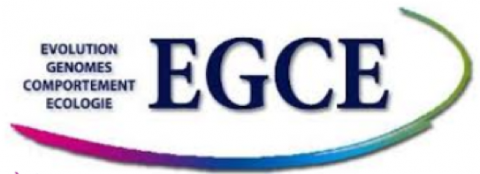
EGCE : Evolution, Genomes, Behavior, Ecology (UMR 9191)
It focuses on the forces and processes that drive evolution (such as adaptation, speciation, genome-environment interactions, species interactions within ecosystems, individual behavior or genome plasticity) and its corollary, biodiversity. The approach is multidisciplinary (from genetics, genomics, physiology to ecology) and combines field/experimental studies and modeling. It includes collaborations with Southern countries for sustainable development.

ESE : Ecology, Systematics, Evolution (UMR 8079)
The unit is interested in the origin and dynamics of biodiversity and its evolution, as well as in the functioning of ecosystems via a multi-scale approach ranging from genes to ecosystems. A transversal theme concerns the consequences of global changes on populations, communities and ecosystems, and the responses to these changes. We combine in situ observations, experimentation and mathematical modeling.
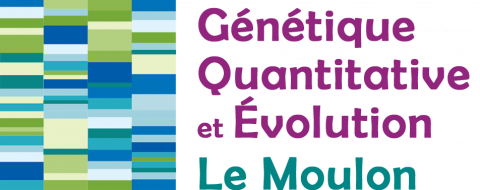
GQE-Le Moulon : Quantitative Genetics and Evolution -Le Moulon (UMR INRAE 0320/CNRS 8120)
It focuses on the genetic and environmental determinants of variation in complex traits at intra- and interspecific levels, to understand adaptation and evolution of populations/species and to propose innovative breeding methods. Recent interest in agroecology has stimulated the integration of environmental and social dimensions in models, and work on interactions between species.
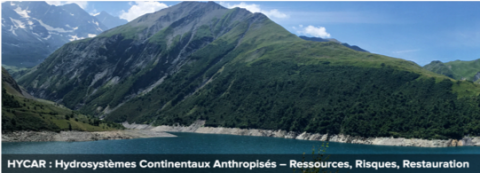
HYCAR - Anthropogenic Continental Hydrosystems - Resources, Risks, Restoration (UR INRAE)
Research is organized around three key disciplines - hydrology, ecology, and ecological engineering - and addresses water resources (quality and quantity), water-related hazards (assessment, anticipation, and management of risks related to hydrological hazards), and restoration of inland water ecosystems under high human pressure.

LSCE : Climate and Environmental Sciences Laboratory (UMR 8212)
It is one of the largest French laboratories for climate and environmental studies and is heavily involved in the drafting of IPCC reports. Specific research related to C-BASC includes: understanding the impact of changes in land cover and land use on climate and atmospheric composition; monitoring pollution in soils, air and rivers; modeling the functioning of natural ecosystems and agro-ecosystems, and soil carbon sources/sinks.
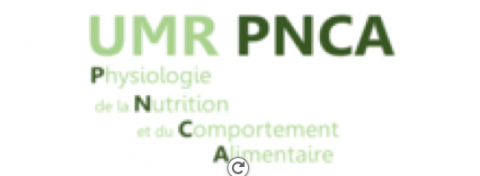
PNCA : Physiology of Nutrition and Eating Behavior (UMR 914)
It addresses the consequences of dietary transitions on the health of populations, particularly in terms of protein, as well as the levers for making food choices that respect sustainable food systems.

PROSE : Biotechnological Processes for the Environment (UR INRAe)
The unit focuses on environmental biotechnologies for the valorization of organic waste and effluents as bioresources contributing to the development of the bioeconomy. The natural diversity and conversion capacities of microbial ecosystems are exploited in innovative environmental technology processes for the production of bioenergy or platform molecules for green chemistry applications.
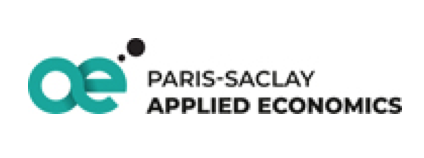
PSAE - Paris-Saclay Applied Economics (UMR)
The research of this unit aims at assessing the economic efficiency of public policies in three thematic areas: (i) Sustainable diets, (ii) Agricultural markets and agri-food chains, (iii) Sustainable production systems, using theoretical analyses and quantitative methods. This effort to quantify economic impacts is based on the constitution of databases with the Odalim platform.
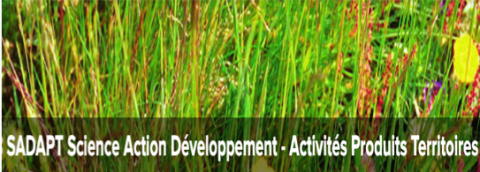
SAD-APT : Sciences Action Development Activities Products Territories (UMR 1048)
It combines life and social sciences to study the dynamics of socio-ecological systems in agriculture (temperate, urban and peri-urban). They explore technical and social innovation to solve complex agricultural and ecological problems, and analyze multi-level governance and territorial development of rural areas, linking land uses and food systems.
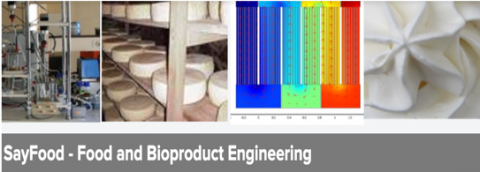
SayFood - Food and Bioproducts Engineering (UMR 782)
The unit is the result of the merger of GENIAL and GMPA and aims to propose new approaches in product and process engineering to develop new sustainable food systems (from conception to consumption), with an integrated, innovative and interdisciplinary vision, including food science, microbiology, (bio)process engineering and consumer science.
The bodies of C-BASC
The coordination team consists of a coordinator (Paul Leadley, ecologist), two assistant coordinators from different disciplines (Maia David, economist and Philippe Martin, agronomist) and a project manager (Diane Maurissen).
The coordination team is responsible for the day-to-day management and represents the program within and outside the university.
It meets every week or two.
The Steering Committee consists of the Coordination Group and the directors of the 17 C-BASC laboratories (or their representatives).
It is the decision-making body. It discusses research, training and innovation strategies, follows the evolution of projects and networks, and develops and evaluates calls for proposals.
It meets quarterly and will be mobilized more frequently by e-mail.
The Accompanying Committee is composed of the university vice-president, representatives of the 5 graduate schools involved in C-BASC, and possibly representatives of the three closest graduate schools (ABIES, SEVE, SDSV).
The committee focuses on the coherence of actions at the university level, communication, interactions with training programs and interactions with graduate schools.
It meets once or twice a year.
